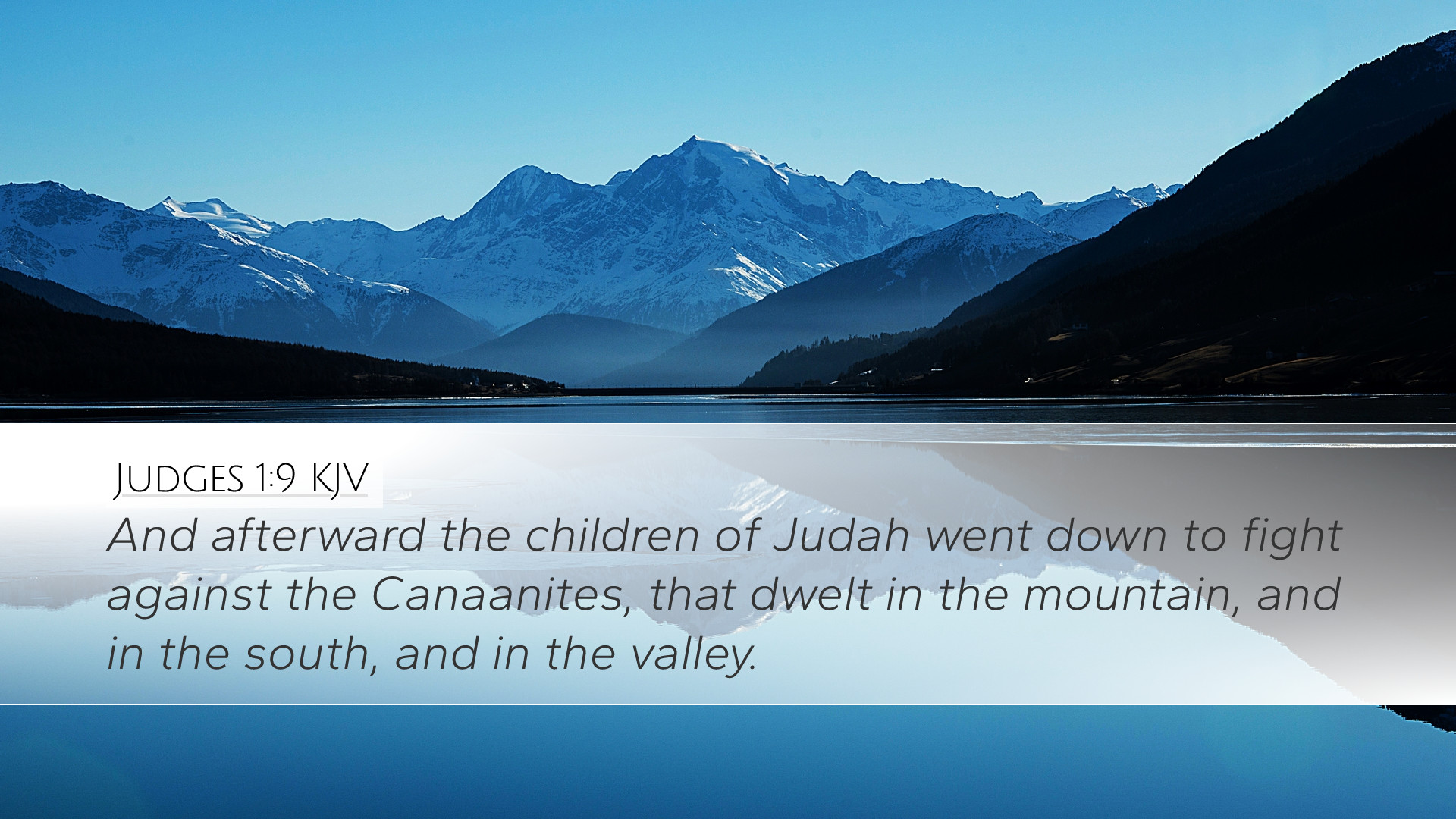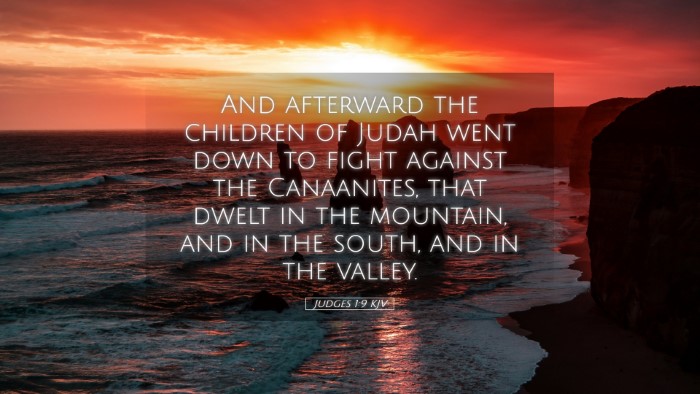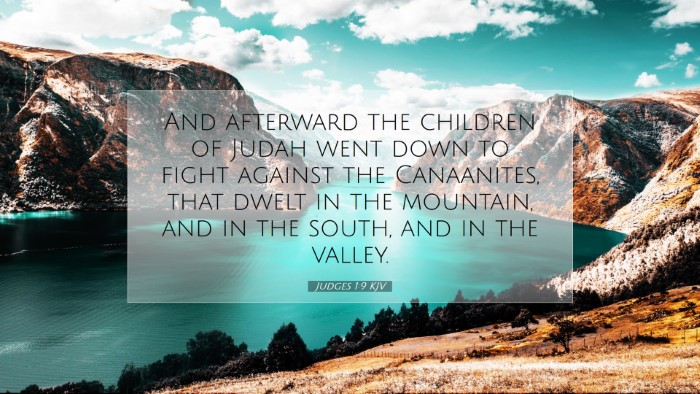Commentary on Judges 1:9
Text of Judges 1:9: "And afterward the children of Judah went down to fight against the Canaanites, that dwelt in the mountain, and in the south, and in the valley."
Introduction
The verse under consideration serves as a pivotal point in the narrative of Judges, marking a transitional moment where the tribe of Judah steps forward with decisive action following the death of Joshua. This commentary aims to synthesize insights from various public domain sources, particularly those of Matthew Henry, Albert Barnes, and Adam Clarke, to present an in-depth analysis suitable for pastors, students, theologians, and Bible scholars.
Historical Context
The book of Judges delineates a tumultuous period in Israel's history following the conquest of Canaan and the subsequent transition into a more decentralized form of governance among the tribes. Each tribe was instructed to undertake the task of driving out the Canaanites. In this context, Judah's military campaign represents both obedience to God's command and the continuation of Israel's conquest.
- Matthew Henry: Highlights that the tribe of Judah acted not only out of necessity but also from a desire for dominion and to fulfill the Lord's promise.
- Albert Barnes: Emphasizes that the mention of the geographical distinctions (mountain, south, valley) illustrates the comprehensive nature of Judah's military campaign.
- Adam Clarke: Points out that the Canaanites' strongholds in these areas posed significant challenges, which underscores the courage and faith of Judah as they ventured forth for battle.
Theological Significance
Judges 1:9 serves as a reflection of Israel's covenantal responsibilities. Each tribe, particularly Judah, symbolizes a commitment to both inheritance and warfare in the face of opposition. This verse also foreshadows themes of struggle, victory, and division that permeate the book of Judges.
- Covenantal Obedience: Both the action of going to battle and the areas targeted reveal a broader theological motif of engaging in spiritual warfare as part of fulfilling God's promises.
- Tensions in the Land: The mention of the various terrains signifies the varying challenges faced by the Israelites—not just physical but also spiritual, as the Canaanites represented idolatrous practices that were antithetical to Yahweh worship.
- Leadership of Judah: Judah’s actions set a precedent for Israel’s future military endeavors and signify a model of leadership rooted in faithfulness to God's commands.
Spiritual Application
For contemporary readers—especially pastors and theologians—Judges 1:9 incites a reflection on perseverance and faith in the face of adversity.
- Facing Challenges: Just as Judah faced the formidable Canaanites, so believers today are called to confront the challenges of the present age, relying on God's strength and guidance.
- Marching into Battle: Spiritual battles manifest as moral and spiritual struggles in our lives, where the imperative is to proactively engage rather than retreat.
- Community Responsibility: Judah’s collective effort reflects the biblical principle that the church is called to unite in its mission against the spiritual principalities inhabiting the world.
Conclusion
The richness of Judges 1:9 lies not only in its historical narrative but also in its profound theological implications. It serves as a reminder of the importance of faithfulness, community action, and the enduring promise of God to His people as they navigate the complexities of life and faith.
Key Takeaway: Approaching the challenges of life requires not just individual faith but a communal commitment to God's command, much like the tribe of Judah demonstrated in their quest for conquest and righteousness amidst opposition.


